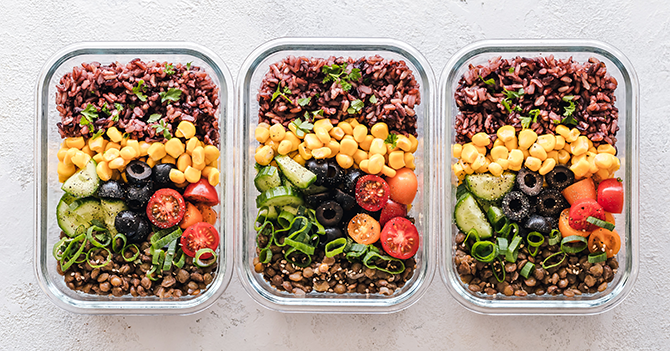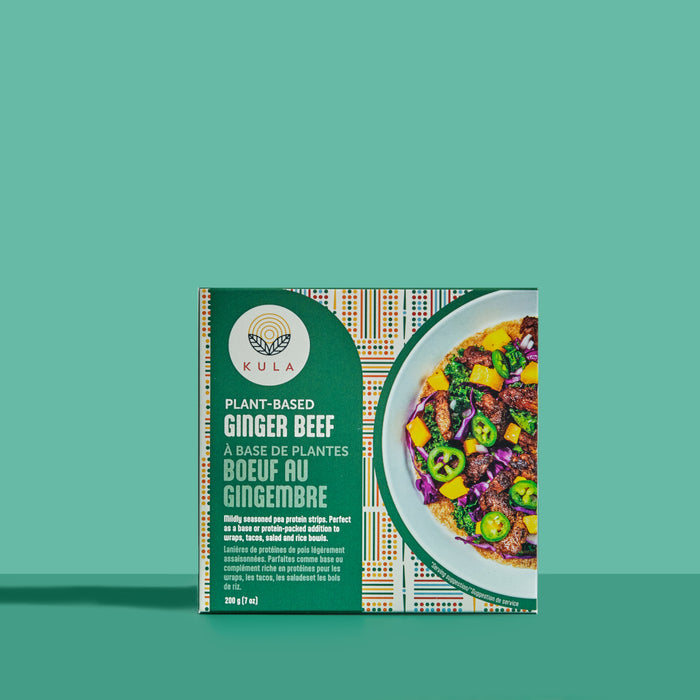Everything About Healthy And Balanced Food: Benefits of Taking On Plant Based Alternatives
The conversation bordering plant-based diet regimens has actually gained significant attention over the last few years. Many people are discovering the possible health and wellness benefits, nutritional advantages, and ecological influences linked with these nutritional selections. As individuals end up being a lot more knowledgeable about their food's influence on well-being and sustainability, questions emerge concerning the functionalities of adopting such a lifestyle. What details adjustments can one expect, and how might these selections improve not only individual wellness yet likewise the planet's future?
Recognizing Plant-Based Diet Plans
Several individuals associate plant-based diet regimens mostly with vegetarianism or veganism, these diet plans can encompass a wide range of consuming patterns that prioritize entire, minimally refined plant foods. Such diet plans commonly consist of fruits, vegetables, entire grains, nuts, beans, and seeds, while limiting or removing animal items. This flexibility enables people to tailor their nutritional choices according to dietary needs and personal choices. Some might adopt a largely plant-based diet while still sometimes consuming meat or milk, typically described as a flexitarian approach. The focus stays on including more plant foods, which can result in a varied selection of flavors and dishes. Recognizing these various interpretations of plant-based eating is crucial for appreciating its access and allure in contemporary food society.
Wellness Conveniences of Plant-Based Foods
The health advantages of plant-based foods are considerable, providing a nutrient thickness advantage that sustains total wellness. Research study indicates that these foods can improve heart wellness and play a necessary function in efficient weight monitoring. By incorporating much more plant-based options, people might enhance their dietary choices and advertise long-lasting wellness.
Nutrient Thickness Advantage
Nutrient density plays a crucial duty in the health and wellness benefits of plant-based foods, making them an engaging option for those looking for a well balanced diet plan. Plant-based foods, such as fruits, veggies, vegetables, nuts, and entire grains, are typically rich in important vitamins, minerals, and anti-oxidants while being reduced in calories. This high nutrient density enables individuals to take in less calories while still fulfilling their nutritional needs. Additionally, these foods are packed with dietary fiber, advertising digestive health and wellness and aiding in weight monitoring. By including nutrient-dense plant-based choices, customers can enhance their overall wellness, sustain their immune systems, and reduce the danger of persistent diseases. Ultimately, the nutrient thickness of plant-based foods highlights their relevance in a health-conscious way of life.
Heart Health And Wellness Enhancement

Weight Administration Support
In enhancement to promoting heart health, a plant-based diet plan can significantly assist in weight administration. This dietary method highlights entire foods such as fruits, vegetables, beans, nuts, and whole grains, which are normally lower in calories and greater in fiber contrasted to animal-based products. The high fiber web content aids enhance satiation, decreasing overall calorie consumption. Plant-based diets are commonly abundant in necessary nutrients while reduced in unhealthy fats, making it much easier to keep a healthy and balanced weight. Research shows that people that take on a plant-based way of life tend to have reduced body mass indexes (BMIs) and experience more successful fat burning contrasted to those that consume meat-heavy diet plans. Subsequently, accepting plant-based alternatives is a strategic choice for reliable weight management
Nutritional Worth of Plant-Based Active Ingredients
Plant-based ingredients are abundant in vital nutrients, offering a varied range of vitamins, minerals, and antioxidants that contribute to general health and wellness. A contrast of healthy protein resources exposes that while pet original site products are typically seen as remarkable, several plant-based options offer sufficient protein and other useful substances. Comprehending the dietary worth of these active ingredients can help individuals make educated nutritional choices.
Essential Nutrients in Plants
Nutrient-rich active ingredients discovered in plants use a diverse selection of vital nutrients that add significantly to overall health. These components are abundant in vitamins A, C, and K, which sustain immune feature, vision, and blood clotting, respectively. In enhancement, plants provide crucial minerals such as magnesium, calcium, and potassium, important for heart health and wellness, muscle mass function, and bone stamina. The presence of fiber in plant-based foods help food digestion and promotes a healthy and balanced intestine microbiome. Anti-oxidants, discovered perfectly in vegetables and fruits, help combat oxidative tension and minimize inflammation. In addition, numerous plant foods are low in calories yet high in nutrients, making them an outstanding selection for those looking for to preserve a healthy and balanced weight while guaranteeing ideal nutrient intake.
Comparing Healthy Protein Resources
Protein resources differ considerably in their dietary profiles, with plant-based ingredients using special advantages. Unlike pet healthy proteins, which frequently include hydrogenated fats and cholesterol, plant proteins tend to be lower in these unhealthy parts. Legumes, nuts, seeds, and whole grains are abundant in crucial amino acids, fiber, vitamins, and minerals. For circumstances, lentils give high protein material together with significant iron and folate, while quinoa is a complete healthy protein, providing all nine crucial amino acids. Additionally, plant-based healthy proteins are often come with by right here anti-oxidants and phytochemicals that support general wellness. The shift to plant-based healthy protein resources not just enhances nutritional consumption however additionally lines up with lasting nutritional click to read more techniques, reducing ecological impact and promoting long-term health and wellness benefits.
Ecological Influence of Plant-Based Consuming
As understanding of environment modification grows, numerous individuals are checking out lasting nutritional options that can significantly reduce their ecological footprint. Plant-based eating has actually arised as a substantial factor to minimizing greenhouse gas exhausts, which are mainly connected with livestock manufacturing. The cultivation of fruits, veggies, legumes, and grains usually needs fewer sources, such as water and land, compared to pet farming. Furthermore, plant-based diet regimens can lead to reduced logging, as less land is required for grazing livestock or expanding animal feed. By changing in the direction of plant-based alternatives, customers can support biodiversity and advertise much healthier environments. Generally, embracing plant-based eating not only advantages personal health and wellness however also stands for a crucial action towards environmental sustainability and preservation efforts.
Overcoming Common Misconceptions
While lots of individuals recognize the benefits of a plant-based diet plan, several mistaken beliefs typically discourage them from fully accepting this lifestyle. A typical belief is that plant-based diet plans do not have sufficient protein; however, various plant resources, such as vegetables, nuts, and tofu, provide sufficient healthy protein. Additionally, some presume that this diet plan is expensive, when in truth, staples like beans, rice, and seasonal vegetables can be quite budget friendly. Another misconception is that plant-based consuming is overly restrictive, whereas it in fact supplies a diverse range of foods and tastes. Lots of stress that a plant-based diet regimen might lead to deficiencies, yet with correct preparation, individuals can obtain all required nutrients, consisting of minerals and vitamins, while enjoying a wide variety of tasty meals. Vast Tips for Transitioning to a Plant-Based Way of life
Making the change to a plant-based way of living can be an enriching experience, though it commonly needs some guidance to navigate the initial adjustments. First, people are encouraged to begin slowly, incorporating even more fruits, veggies, beans, and whole grains into their dishes while reducing meat and dairy intake. Meal planning is crucial; preparing a weekly menu can help ease the adjustment and stop final unhealthy choices. Exploring brand-new dishes and cooking approaches can additionally maintain and improve the experience enjoyment about plant-based consuming. Furthermore, joining support teams or areas can offer motivation and share important tips. Finally, remaining informed concerning nourishment guarantees balanced dishes, protecting against deficiencies while promoting a healthy and balanced, gratifying plant-based way of life.
Delicious Plant-Based Dish Ideas
Exploring delicious plant-based dish ideas can influence people to embrace a much more nourishing diet plan. One preferred option is a hearty quinoa salad, including cherry tomatoes, cucumber, and a zesty lemon-tahini dressing. An additional fave is a tasty lentil stew, loaded with carrots, celery, and fragrant herbs, best for a calming dinner. For morning meal, over night oats made with almond milk, chia seeds, and covered with fresh berries offer a healthy beginning to the day. Additionally, a dynamic veggie stir-fry with tofu and a selection of vivid veggies can be a quick yet satisfying meal. Creamy avocado salute on whole-grain bread, sprayed with flavors and seeds, provides a basic yet savory treat. These dishes display the variety and richness of plant-based eating.

Regularly Asked Concerns
Can a Plant-Based Diet Plan Provide Sufficient Healthy Protein?
The question of whether a plant-based diet can give adequate protein prevails. Many sources, consisting of vegetables, nuts, seeds, and whole grains, can fulfill healthy protein needs properly, sustaining a nourishing and balanced diet regimen for individuals.
Are Plant-Based Diets Appropriate for Children?
The viability of plant-based diets for youngsters depends upon mindful planning. Adequate nutrients need to be guaranteed, consisting of minerals, vitamins, and proteins. With correct guidance, such diet regimens can support healthy development and development in youngsters.
How Do I Eat Out on a Plant-Based Diet?
Dining out on a plant-based diet plan includes looking for restaurants with diverse food selections, asking for adjustments, and discovering vegan-friendly options. Preparation in advance and communicating dietary choices can boost the dining experience while preserving dietary selections.
What Prevail Irritants in Plant-Based Foods?
Usual allergens in plant-based foods include soy, gluten, nuts, and seeds - BBQ Sauces. Individuals following a plant-based diet regimen should understand these irritants and read labels meticulously to avoid negative responses and guarantee safe usage
Can Plant-Based Diets Aid With Weight Reduction?
Research study suggests that taking on a plant-based diet regimen might facilitate weight-loss because of its commonly reduced calorie thickness and greater fiber web content. This combination can enhance satiety, helping individuals manage their caloric consumption effectively. Many people associate plant-based diets mainly with vegetarianism or veganism, these diets can encompass a wide array of consuming patterns that focus on entire, minimally refined plant foods. Nutrient density plays a vital function in the health and wellness benefits of plant-based foods, making them a compelling choice for those looking for a well balanced diet plan. Plant-based diet plans have been shown to considerably improve heart wellness, as they commonly include elements that support cardio function. In addition to advertising heart wellness, a plant-based diet plan can considerably assist in weight monitoring. A typical belief is that plant-based diet regimens do not have sufficient healthy protein; nevertheless, various plant sources, such as beans, nuts, and tofu, offer ample healthy protein.